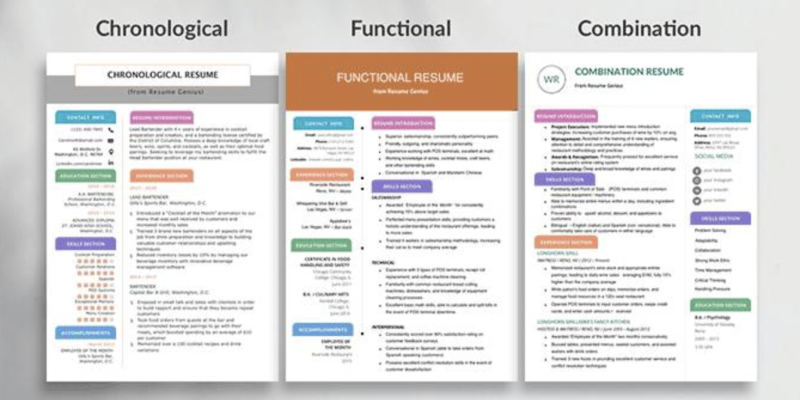If you’re wondering which resume format is best for your job search, you’ve come to the right place. In this article, we’ll compare chronological and functional resumes and help you decide which one is right for you.
Chronological resumes are the most common type of resume and are best for candidates with a strong work history in the same field.
Functional resumes, on the other hand, are best for candidates with gaps in their employment history or who have relevant experience in a different field. They also focus on your skills and abilities, rather than your work history.
So, which resume format is right for you? Let’s take a closer look at the pros and cons of each type of resume.
Chronological Resume Pros and Cons
PROS:
- Chronological resumes are easy to follow and understand.
- They clearly show your employment history and progression.
- Chronological resumes are familiar to employers and recruiters.
CONS:
- Chronological resumes can be problematic if you have employment gaps or job-hopping.
- They may also highlight any lack of progression in your career.
Pros and Cons of Functional Resumes
PROS:
- Functional resumes are great for candidates with employment gaps or who have relevant experience in a different field.
- They focus on your skills and abilities, rather than your work history.
- Functional resumes can help you downplay any lack of progression in your career.
CONS:
- Functional resumes can be difficult to follow and understand.
- They can be perceived as hiding something, such as employment gaps.
- They are less familiar to employers and recruiters.
If you’re not confident in putting a resume together yourself, you can always use a free resume builder.
Important Information to Include on a Resume
When crafting your resume, it is important to include information that will help you stand out to potential employers. In addition to listing your work experience and education, be sure to include any special skills or training you have that could make you a valuable asset to the company.
If you are proficient in multiple languages, have experience working with certain software programs, or have received any awards or recognition in your field, be sure to list these details as well. By providing potential employers with a well-rounded picture of your skills and experience, you’ll increase your chances of landing the job you want.
And of course, be sure to include necessary information like your name, address, and contact information. With a little thought and effort, you can create a resume that will help you get the job you want!
Understanding the Differences Between Functional Resumes and Chronological Resumes
So, which resume format is right for you? If you have a strong work history in the same field and no employment gaps, a chronological resume is a good choice. On the contrary, if you have relevant experience in a different field or employment gaps, functional resumes are the better option.
To read more content like this, be sure to check out the other articles on our website. Enjoy!



